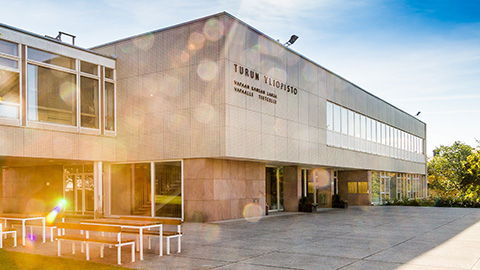Ministry of Foreign Affairs Grants Development Co-operation Funding to Two Projects
The Ministry of Foreign Affairs granted €12 million from the HEI ICI Programme to the development co-operation of higher education institutions in 2017–2020. Altogether 20 projects that strengthen higher education in developing countries will be realised with the funding in 16 countries. At the University of Turku, funding was received by the HEI ICI PECOLO project promoting sustainable and innovative food futures of native crops in Peru and Colombia, and the Geo-ICT project which focuses on improving the quality of research and education and strengthening the role and relevance of geospatial-ICT competences in the development of the society.

The Ministry of Foreign Affairs funds the HEI ICI (Higher Education Institutions Institutional Cooperation Instrument) Programme from Finland's development co-operation funds. The programme is managed by the Finnish National Board of Education.
The co-operation is focused on the least developed countries in Africa and Asia, especially on Finland's partner countries in development co-operation. There are also other countries involved, such as Peru and Myanmar. The co-operation takes place in higher education institution networks, the size and geographical coverage of which vary.
The projects are based on the needs defined by the partner higher education institutions in the developing countries and they utilise the expertise of Finnish higher education institutions. The support helps to e.g. develop the degree programmes and teaching methods of higher education institutions, organise continuation education for personnel, and strengthen research capacity and working life contacts. The projects develop, for their part, the field-specific, methodological, pedagogic and administrative capacities of higher education institutions.
By supporting education in developing countries, expertise, progress towards an equal society, entrepreneurship and sustainable development are promoted.
HEI ICI PICOLO Develops Food Innovations in Peru and Columbia
Two projects received funding at the University of Turku. Native Crops for Sustainable and Innovative Food Futures in Peru and Colombia (HEI ICI PECOLO) project studies how native corps can be utilised in sustainable and innovative food futures in Peru and Columbia. The aim of the project is to develop innovations and innovation environments by using methods of futures research.
– The Andean region is exceptionally rich in biodiversity, harbouring an important centre of domestication of global food crops, such as potato, quinoa, corn, peanut and tomato. Such biodiversity provides a great potential to re-discover nutritionally rich local varieties and utilise them to develop innovative food applications. Utilisation of native plant crops provides promising solutions to address the wider sustainability goals, while utilising locally produced nutritious food, says Hanna Lakkala, the coordinator of the PECOLO project from Finland Futures Research Centre.
HEI ICI PECOLO project begins in spring 2017 and continues until autumn 2019. Finland Futures Research Centre, Functional Foods Forum and Department of Biochemistry are involved in the project from the University of Turku. Other partners are Universidad el Bosque in Bogota, Colombia, and Universidad Agraria la Molina in Lima, Peru.
>> HEI ICI PECOLO -project presentation
Geo-ICT Strengthens Geospatial and ICT Expertise in Tanzania
The other project that received funding is Geospatial and ICT capacities in Tanzanian Higher Education Institutions (Geo-ICT) project which focuses on improving the quality of research and education in higher education institutions and strengthening the role and relevance of geospatial-ICT competences in the development of society.
– The aim is to improve the geospatial and ICT skills and pedagogical competence of staff in partner universities, and to support partners in renewing teaching structures and materials and strengthening research and education environment. The goal is to also provide support for the geospatial and ICT entrepreneurship ecosystem in Tanzania, so that higher education institutions would have a stronger role in the field within society, says Geo-ICT project coordinator, University Lecturer Niina Käyhkö.
The Department of Geography and Geology and the Department of Future Technologies are involved in the three-year project from the University of Turku, and partners in Tanzania include the University of Dar es Salaam (UDSM), Ardhi University (ARU), University of Zanzibar (SUZA) and Sokoine University of Agriculture (SUA).
TS / SY